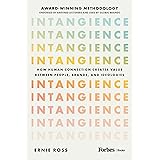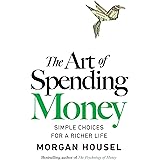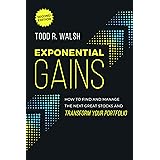As highlighted in the accompanying video, the assertion that gold is cheaper in Dubai holds a significant kernel of truth, particularly when considering specific gold products. Indeed, for unadorned gold bars or jewelry with zero making charges, one can often find prices approximately 15% lower than in many other global markets. This notable price advantage has historically driven individuals to seek out Dubai for their gold acquisitions, sometimes even leading to illicit activities like smuggling, purely due to the substantial arbitrage opportunities present.
However, as the video also astutely points out, this seemingly straightforward saving can quickly evaporate. The vast majority of jewelry found in iconic locales like the Dubai Gold Souk comes with “making charges” that typically range from 15% to a staggering 40%. These charges, essentially the craftsmanship premium, can utterly negate any benefits gained from Dubai’s tax-free environment and its generally favorable gold rates, turning an anticipated bargain into an average, or even overpriced, purchase.
Deconstructing Dubai’s Gold Advantage: Beyond the Initial Lure
The allure of buying gold in Dubai is multifaceted, stemming from several key economic and regulatory factors that set it apart from many other jurisdictions. Primarily, Dubai, part of the United Arab Emirates, has historically imposed minimal to no import duties on raw gold, creating a lower baseline cost for dealers.
This absence of tariffs on bullion significantly impacts the overall cost structure. Furthermore, for investment-grade gold such as bars and coins, Value Added Tax (VAT) in the UAE is a modest 5%. This contrasts sharply with many Western nations where VAT or sales tax can be considerably higher, directly inflating the end consumer price of gold.
The Role of VAT and Import Tariffs in Gold Pricing
In many countries, import tariffs on gold are levied to protect local industries or generate government revenue. Dubai, however, has positioned itself as a global trading hub, fostering an environment where precious metals can flow freely with minimal taxation. This strategic approach keeps the wholesale cost of gold inherently lower for retailers operating within the Emirate.
Conversely, the 5% VAT applied to gold transactions is often perceived as low compared to typical rates in Europe (e.g., 20% in the UK) or various state sales taxes in the US. For investment gold products that meet specific criteria, even this 5% VAT can sometimes be reclaimed or not applied at all for international purchasers, further sweetening the deal for serious investors or bulk buyers seeking a net positive spread on their acquisition.
Navigating the Labyrinth of Gold “Making Charges”
While the intrinsic value of gold (its weight and purity based on the global spot price) is a universal constant, the final price of a gold item, particularly jewelry, is heavily influenced by “making charges.” These charges represent the labor, design, and manufacturing costs involved in transforming raw gold into a finished piece.
The video’s warning about 15% to 40% making charges is crucial for any potential buyer. For instance, purchasing a 22-karat gold necklace weighing 50 grams might seem like a bargain based on Dubai’s low per-gram gold rate. However, if the vendor tacks on a 30% making charge, that 30% is added on top of the already significant value of the 50 grams of gold, effectively eroding any initial savings and potentially making the piece more expensive than a similar item purchased elsewhere with transparent pricing.
Making Charges: A Deep Dive into Negotiation and Transparency
Understanding how making charges are applied is paramount. Some jewelers calculate them as a percentage of the gold’s value, while others charge a fixed amount per gram or per piece, especially for intricate designs. A discerning buyer must always inquire about these charges upfront and understand their calculation methodology.
This is where the art of negotiation, deeply embedded in the culture of places like the Gold Souk, becomes vital. Many shops are open to bargaining on making charges, particularly for higher-value items or for customers purchasing multiple pieces. It’s not uncommon for savvy shoppers to reduce these charges by 5% to 10% or more through polite but firm negotiation, reclaiming some of the initial price advantage that drew them to Dubai’s gold markets in the first place.
Distinguishing Gold Products: Bullion vs. Jewelry
The nature of your gold purchase significantly impacts the final cost and the applicability of making charges. The video rightly highlights that gold bars (bullion) typically come with 0% making charges. This is because bullion is valued purely for its metal content and purity, serving as an investment vehicle rather than an ornamental item.
Investment-grade gold, usually 24-karat (99.9% pure), includes items like standard gold bars (e.g., 100g, 1kg), fractional bars, and specific investment coins. These products are often sold with a minimal premium over the global spot price, reflecting only a small fabrication cost and dealer’s margin. This category represents the clearest path to realizing the “cheaper gold” promise in Dubai.
The Purity Factor: Karatage and Its Implications
Gold jewelry, conversely, involves varying levels of purity, commonly 22-karat (91.6% pure) or 18-karat (75% pure), alloyed with other metals to enhance durability and allow for intricate designs. While 24-karat jewelry exists, it’s less common due to its softness. The lower the karatage, the less pure gold it contains, which means its intrinsic value per gram is also lower.
When purchasing jewelry, buyers must not only consider making charges but also the karatage. A 22-karat chain will naturally be cheaper per gram of actual gold content than a 24-karat bar, even before making charges are factored in. Always ensure that the purity (karatage) is clearly stated and preferably hallmarked, a common practice in Dubai to ensure consumer protection and adherence to international standards.
Practical Strategies for Buying Gold in Dubai
For those intent on capitalizing on Dubai’s favorable gold market, a strategic approach is essential. Begin by checking the live gold rates, which are publicly displayed and updated multiple times daily by the Dubai Gold & Jewellery Group, often mirroring the international spot price. This gives you a baseline for negotiation.
When entering any gold shop, especially in bustling areas like the Gold Souk, clearly differentiate between your intent: are you buying for investment (bullion) or for adornment (jewelry)? For jewelry, be prepared to engage in negotiation regarding making charges. Do not hesitate to walk away if the charges seem excessive, as competition among vendors is fierce.
Beyond the Price Tag: Verifying Authenticity and Documentation
Always insist on a detailed invoice that clearly separates the gold’s weight, purity (karatage), per-gram price, and the exact making charges. This transparency is vital for future reference or if you ever decide to resell the item. Reputable dealers in Dubai adhere strictly to hallmarking standards, ensuring the stated purity of the gold is accurate, a crucial safeguard for buyers.
Finally, be mindful of your home country’s customs regulations regarding gold imports. While Dubai offers advantageous pricing for gold, exceeding personal import limits without declaring the goods can lead to duties and taxes upon re-entry, potentially negating all the savings made on gold in Dubai.











